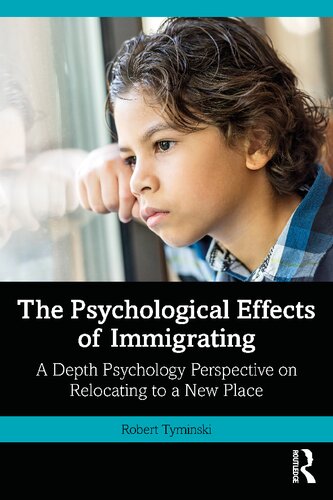

Most ebook files are in PDF format, so you can easily read them using various software such as Foxit Reader or directly on the Google Chrome browser.
Some ebook files are released by publishers in other formats such as .awz, .mobi, .epub, .fb2, etc. You may need to install specific software to read these formats on mobile/PC, such as Calibre.
Please read the tutorial at this link: https://ebookbell.com/faq
We offer FREE conversion to the popular formats you request; however, this may take some time. Therefore, right after payment, please email us, and we will try to provide the service as quickly as possible.
For some exceptional file formats or broken links (if any), please refrain from opening any disputes. Instead, email us first, and we will try to assist within a maximum of 6 hours.
EbookBell Team

0.0
0 reviewsExploring immigration from psychological, historical, clinical, and mythical perspectives, this book considers the varied and complex answers to questions of why people immigrate to entirely new places and leave behind their familiar surroundings and culture.
Using research reviews, extensive case material, and literary examples (such as Virgil’s The Aeneid), Robert Tyminski’s work will deepen readers’ understanding of what is both unique and universal about migratory experiences. He addresses the negative consequences of xenophobia, the acculturation experiences of children compared to adults, the trauma and psychological issues that arise when seeking refuge or relocating to a new country, and the more recent implications of COVID-19 upon border crossings. Tyminski also re-evaluates the term identity as a psychological shorthand, suggesting that it can flatten our understanding of human complexity and erase migrant and refugee life stories and differences. As one of few books to investigate immigration from a Jungian-oriented perspective, Robert Tyminski’s work offers a new and broad perspective on the mental health issues related to immigration.
This book will prove essential for clinicians working with refugees and migrants, when in training and in practice, as well as students and practitioners of psychoanalysis seeking to deepen their understanding of migratory experiences.